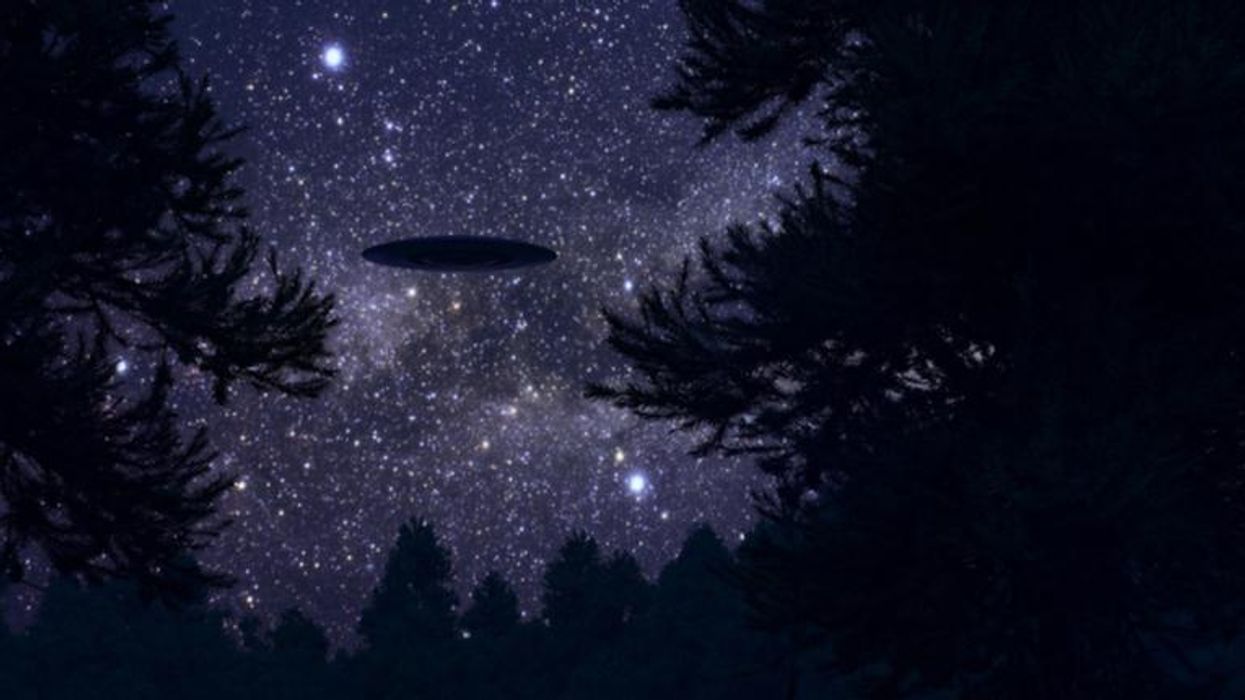How a key psychological concept was undermined once 'UFOs failed to arrive': study

UFO at night in a forest (Shutterstock).
UFO at night in a forest (Shutterstock).

UFO at night in a forest (Shutterstock).
A 1956 book favored by UFO believers that is considered "an enduring classic in the fields of new religious studies, cult research, and social psychology," is being called into question as a potential lie, according to Anna Merlan in Mother Jones.
When Prophecy Fails, written by Leon Festinger, Henry W. Riecken, and Stanley Schachter, details a study of a UFO cult known as the Seekers that predicted the end of the world.
The book also introduced the theory of cognitive dissonance, which explains the psychological mechanisms for how people cope when their deeply held beliefs are contradicted by reality.
"The book is gripping, an in-depth social and psychological study of Martin’s group and how they behaved, both as it was forming and after their prophetic visions failed to take place," Merlan explains, adding that "it has served as a key basis for the psychological concept of cognitive dissonance."
That theory "was taken further by Festinger, who wrote a widely-cited followup book on cognitive dissonance and how people try to engage in 'dissonance reduction' to reduce the psychological pressure and unease they experience when confronted with conflicting information," she notes.
But a new study that examined Festinger’s recently unsealed papers claims that the book "leans on lies, omissions and serious manipulation," Merlan says.
"The article, published this month in the peer-reviewed Journal of the History of the Behavioral Sciences, also argues that, contrary to the researchers’ longstanding narrative, the group members all showed clear signs of quickly abandoning their beliefs when the UFOs failed to arrive, and that the group soon dissolved," Mother Jones reports.
Thomas Kelly, the author of the article, says "while core members of the group stayed active in UFO spaces, they did not keep insisting on a world-ending flood, or that aliens would land and take them away."
The Seekers, Kelly notes, were quick to disavow those beliefs and eventually rebranded.
The group's leader Dorothy Martin "distanced herself completely from these events, even rewriting the story of how she developed her psychic powers," Kelly writes.
"Kelly’s paper not only undercuts the researchers’ claims and their application of the theory developed from them, but also alleges they committed scientific misconduct, including 'fabricated psychic messages, covert manipulation, and interference in a child welfare investigation,'" Merlan explains.
Kelly says that researchers "twisted the group’s behavior to fit their thesis, downplaying the proselytization they did before the prophecy failed and playing up any proselytization that occurred after."
Merlan notes that this interpretation is key, "because the thesis of When Prophecy Fails is clear: after Martin’s failed prophecy, her group doubled down, not only by refusing to acknowledge that their core predictions had utterly failed, but banding together with a new zeal to spread them."
"The interference Kelly uncovered goes beyond manipulation," Merlan notes, but not everyone agrees with Kelly's interpretation.
Poulomi Saha, a University of California-Berkeley associate professor in critical theory who is writing a book on the cultural fascination with cults, says Kelly used a narrow reading of limited materials to draw his conclusion.
"This author ends up doing what he accuses the authors of When Prophecy Fails of doing, which is cherrypicking evidence," Saha says of Kelly, adding, “if we want to critique the methods and think about how methodology has changed in 70 years, I would encourage that. We’re talking about different academic and scholarly methods 70 years ago around things like participant observation.”
Saha also says that Kelly was “very dismissive” of the fact that group members continued to believe in UFOs.
Thibault Le Texier, an associate researcher at France’s European Centre for Sociology and Political Science, says that "There are findings that people want to hear and findings that people don’t want to hear,” and regardless of what people believe, the book will probably continue to "gain a lot of attention in spite of being debunked."
"It’s also because these are fascinating stories, as riveting as a great movie," he adds.
Merlan agrees, saying, "For now, at least, Prophecy continues to be widely referred to as a classic of the genre. The aliens, it must be said, have not yet landed."